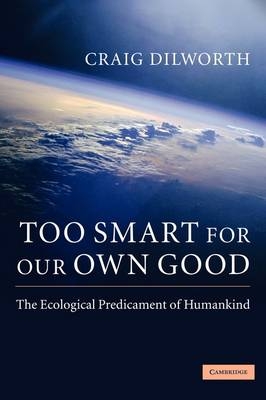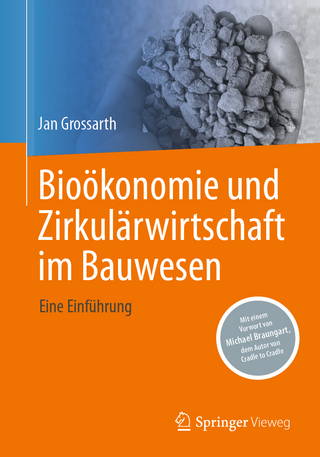
Too Smart for our Own Good
Cambridge University Press (Verlag)
978-0-521-76436-0 (ISBN)
We are destroying our natural environment at a constantly increasing pace, and in so doing undermining the preconditions of our own existence. Why is this so? This book reveals that our ecologically disruptive behaviour is in fact rooted in our very nature as a species. Drawing on evolution theory, biology, anthropology, archaeology, economics, environmental science and history, this book explains the ecological predicament of humankind by placing it in the context of the first scientific theory of our species' development, taking over where Darwin left off. The theory presented is applied in detail to the whole of our seven-million-year history. Due to its comprehensiveness, and in part thanks to its extensive glossary and index, this book can function as a compact encyclopædia covering the whole development of Homo sapiens. It would also suit a variety of courses in the life and social sciences. Most importantly, Too Smart for our Own Good makes evident the very core of the paradigm to which our species must shift if it is to survive. Anyone concerned about the future of humankind should read this groundbreaking work.
Craig Dilworth, born and raised in Canada, received his PhD in Sweden in 1981. He is presently Reader in Theoretical Philosophy at Uppsala University. While he is fundamentally a philosopher, Dilworth is at the same time a true generalist. He has been engaged in a wide variety of environmental projects on the local level, while at the same time developing his intellectual interests in the philosophy of science, human ecology, theoretical physics, theoretical biology, and the social sciences. He is the author of two major works in the philosophy of science, Scientific Progress and The Metaphysics of Science, and an earlier book in environmental science, Sustainable Development and Decision Making. He has spent the past 15 years researching the present book.
Preface; Introduction; 1. Scientific ground rules; 2. The new views in anthropology, archaeology and economics; 3. Theoretical background to the vicious circle principle; 4. The vicious circle principle of the development of humankind; 5. The development of humankind; 6. The vicious circle today; 7. … and too dumb to change; Conclusion; Glossary; Notes; References; Index.
| Erscheint lt. Verlag | 26.11.2009 |
|---|---|
| Zusatzinfo | 2 Tables, unspecified; 35 Halftones, unspecified; 25 Line drawings, unspecified |
| Verlagsort | Cambridge |
| Sprache | englisch |
| Maße | 178 x 254 mm |
| Gewicht | 1120 g |
| Themenwelt | Naturwissenschaften ► Biologie ► Ökologie / Naturschutz |
| ISBN-10 | 0-521-76436-X / 052176436X |
| ISBN-13 | 978-0-521-76436-0 / 9780521764360 |
| Zustand | Neuware |
| Haben Sie eine Frage zum Produkt? |
aus dem Bereich


